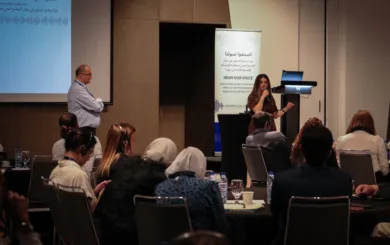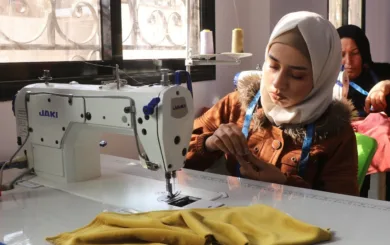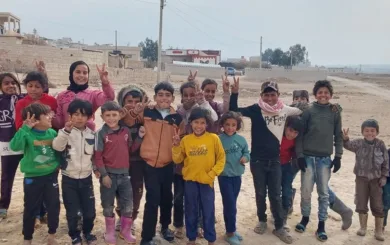The Syrian Arab Republic has experienced over a decade of conflict, resulting in widespread contamination by explosive ordnance. This includes improvised explosive devices (IEDs), landmines, cluster munitions, and other explosive hazards. These threats continue to pose daily risks to civilians and obstruct the safe return of internally displaced persons.
Agricultural activities, reconstruction efforts, and humanitarian access are often hampered by the presence of explosive hazards. The scale and complexity of contamination are among the most severe globally. Norwegian People's Aid (NPA) engages in mine action in Syria to help protect lives, restore access to essential services and land, and support communities striving to rebuild. NPA works with local partners and authorities to mitigate the impact of explosive ordnance, enabling safer living conditions and long-term development.
Country Programme
NPA began operations in Syria in 2021, focusing on addressing the impact of explosive contamination. Our work includes non-technical and technical surveys, clearance of explosive remnants of war, explosive ordnance risk education and capacity development of national staff and civil society organizations.
The contamination in Syria is widespread, affecting urban, rural, and agricultural areas. NPA uses a risk-based approach to prioritize clearance where it will have the greatest humanitarian impact. We have released significant areas of land for safe civilian use and supported the safe return of communities. NPA also provides technical and operational support to local humanitarian mine action partners to strengthen national capacity and ensure long-term sustainability. All operations are conducted in line with International Mine Action Standards (IMAS)
Results 2024
- 3,833,721 square meters of land was surveyed
- 1,495,792 square meters of land was cleared
- 454 explosive items were safely destroyed, including landmines, cluster munitions, and improvised explosive devices
- Clearance activities directly benefited over 110,640 beneficiaries (21,126 women, 23,702 men, 33,535 girls, 32,277 boys)
Fast facts
- Mine Ban Treaty: not a state party.
- The Convention on Cluster Munition: not a state party.






